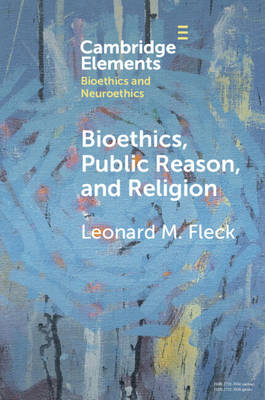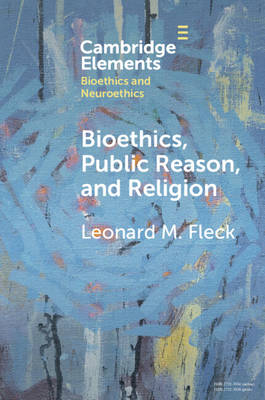
- Afhalen na 1 uur in een winkel met voorraad
- Gratis thuislevering in België vanaf € 30
- Ruim aanbod met 7 miljoen producten
- Afhalen na 1 uur in een winkel met voorraad
- Gratis thuislevering in België vanaf € 30
- Ruim aanbod met 7 miljoen producten
Zoeken
Omschrijving
Can religious arguments provide a reasonable, justified basis for restrictive (coercive) public policies regarding numerous ethically and politically controversial medical interventions, such as research with human embryos, pre-implantation genetic diagnosis, or using artificial wombs? With Rawls, we answer negatively. Liberally reasonable policies must address these controversial technologies on the basis of public reasons accessible to all, even if not fully agreeable by all. Further, public democratic deliberation requires participants to construct these policies as citizens who are agnostic with respect to the truth of all comprehensive doctrines, whether secular or religious. The goal of these deliberations is practical, namely, to identify reasonable policy options that reflect fair terms of cooperation in a liberal, pluralistic society. Further, religious advocates may participate in formal policymaking processes as reasonable liberal citizens. Finally, public reason evolves through the deliberative process and all the novel technological challenges medicine generates for bioethics and related public policies.
Specificaties
Betrokkenen
- Auteur(s):
- Uitgeverij:
Inhoud
- Aantal bladzijden:
- 75
- Taal:
- Engels
- Reeks:
Eigenschappen
- Productcode (EAN):
- 9781009078054
- Verschijningsdatum:
- 1/09/2022
- Uitvoering:
- Paperback
- Formaat:
- Trade paperback (VS)
- Afmetingen:
- 152 mm x 229 mm
- Gewicht:
- 127 g

Alleen bij Standaard Boekhandel
+ 63 punten op je klantenkaart van Standaard Boekhandel
Beoordelingen
We publiceren alleen reviews die voldoen aan de voorwaarden voor reviews. Bekijk onze voorwaarden voor reviews.











